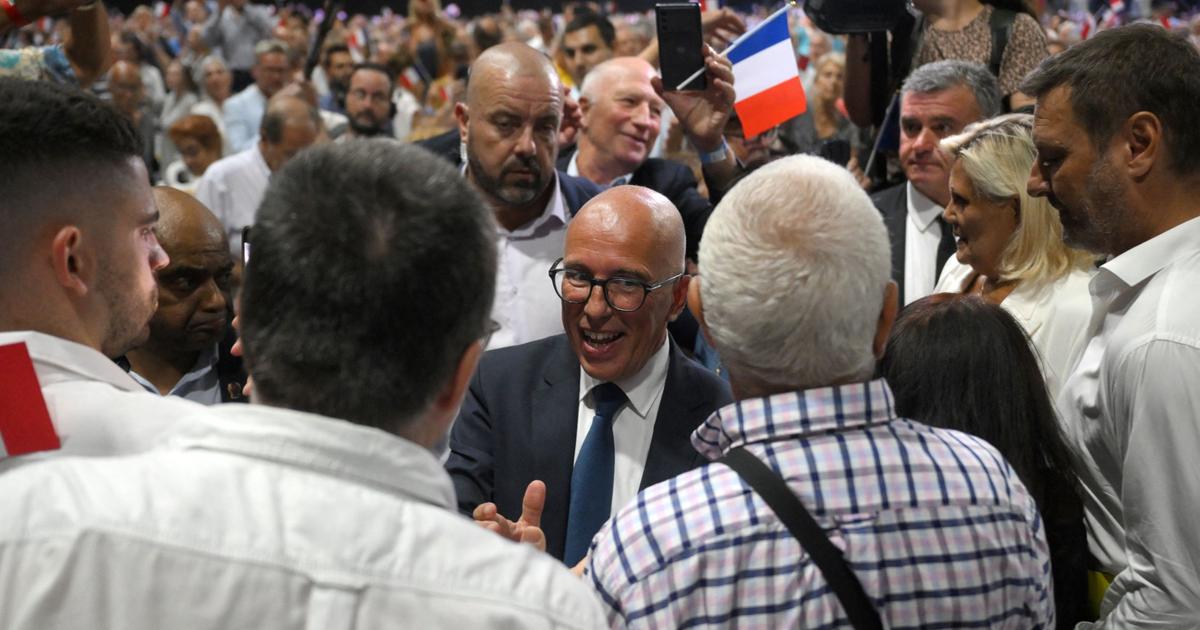The recent European elections have sent shockwaves across France, reshaping the political landscape and setting the stage for fierce battles in the upcoming legislative elections. In the Alpes-Maritimes department, the electoral performance of Les Républicains (LR) has been disappointing, causing concerns among its leaders, especially Éric Ciotti, who faces a challenging road ahead.
In the traditionally right-wing stronghold of Alpes-Maritimes, Laurent Castillo, a professor of medicine, secured a seat as a Member of the European Parliament (MEP) with 7.25% of votes, thanks to the list led by François-Xavier Bellamy. However, the overall support for LR plummeted to a mere 8.88%, far behind the National Rally (RN) led by Jordan Bardella, which garnered 37.73%. The right-wing voters in this region have notably shifted their allegiance, with LR struggling to maintain its base.
The situation is particularly dire for Éric Ciotti, the president of Les Républicains, whose constituency placed LR in the fifth position. The dismal results, combined with the upcoming legislative elections on June 30 and July 7, pose a significant threat to his political future. Internal conflicts and rivalries, especially with Christian Estrosi, the mayor of Nice, could further destabilize LR's position.
On the national stage, the dissolution of the National Assembly announced by President Emmanuel Macron has intensified political activities. The major contenders are mobilizing their forces, with the RN, buoyed by a strong European election performance, aiming for substantial gains. Marion Maréchal, elected under the Reconquest list, signals potential alliances within the right, although her relationship with Éric Zemmour remains strained.
Les Républicains, having rejected the possibility of an alliance with Macron's camp, are strategizing to retain their influence. Éric Ciotti and other party leaders, while refuting any coalition with the presidential majority, are determined to campaign on traditional right-wing values. The Macron administration, meanwhile, seeks broader coalitions to form a stable majority, with outgoing National Assembly President Yaël Braun-Pivet advocating for cooperation among varied political factions.
The left, marked by fragmentation, is also maneuvering for unity. In regions like Haute-Garonne, the RN's rise has been dramatic, prompting calls from political leaders for a unified front. The Nupes alliance, which successfully elected 151 deputies in 2022, is being revisited as left-wing forces look to counter the far-right's surge. Prominent figures like François Piquemal and Carole Delga emphasize the urgency of left-wing unity to address the nation's socio-political challenges.
As France braces for its legislative elections, the political dynamics are poised for significant realignments. The outcomes will not only reflect the public's current sentiments but also shape the country's governance in the run-up to the Paris Olympic Games in 2024.
- Laurent Castillo's election as a Member of the European Parliament might have been a small victory for Les Républicains, but the overall results indicate a broader shift in voter behavior. The overwhelming support for the National Rally in Alpes-Maritimes reveals a critical weakening of traditional right-wing bastions.
- The rivalry within the right, particularly between Éric Ciotti and Christian Estrosi, highlights the internal struggles that could further undermine LR's efforts. Éric Ciotti's firm stance against an alliance with Macron's camp reflects broader ideological divisions that might impact future electoral strategies.
- The dissolution of the National Assembly and the approaching legislative elections have accelerated political maneuvers. The National Rally's solid performance provides them a strong platform, while left-wing parties are grappling with their own need for strategic unity. The next few weeks are crucial for all political entities to consolidate their positions and outline clear programs to appeal to the electorate.






